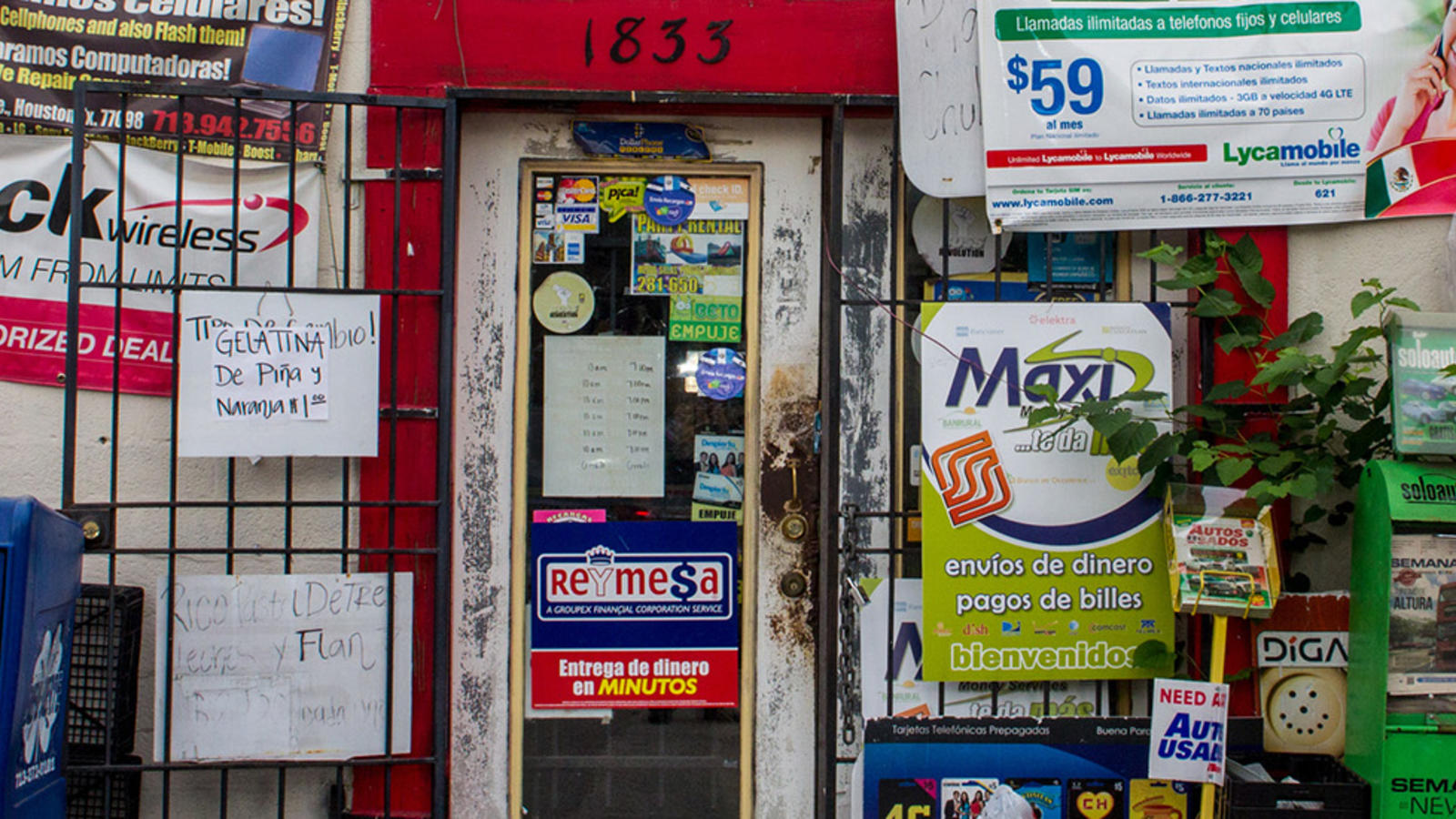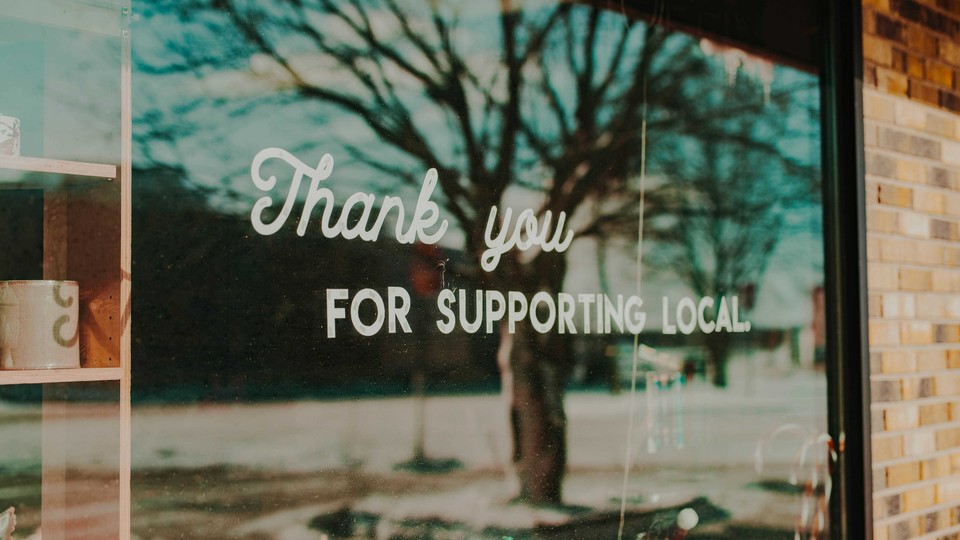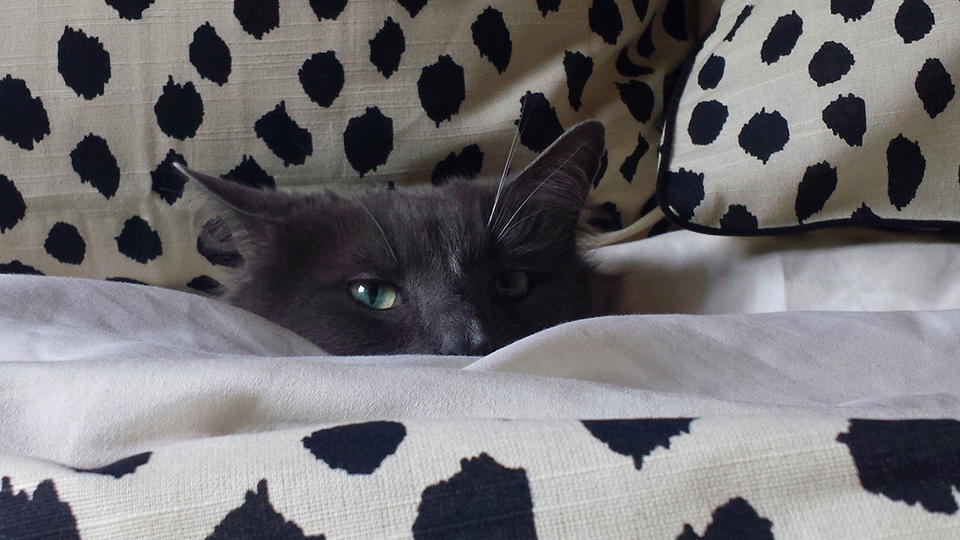
Curiosity Shop
Food Means Belonging, Home In Immigrant Business
By Claudia Kolker
Food Means Belonging, Home In Immigrant Business
How can a small, cluttered, seemingly out-of-date business survive in a neighborhood rapidly transitioning from working- to middle- and upper-middle class? Speaking to writer Claudia Kolker, Rice sociologist Stephen Klineberg explains: In its own way, that business reflects the essence of Houston entrepreneurship.
Wedged into a narrow space on Richmond Avenue, a tiny, chaotic shop called Variedades Puebla peddles snacks not easily found in most other stores. On the counter stands an irregular triangle of cheese, transported by hand from Oaxaca; in the refrigerator sits a blood-red hunk of mole, cooked with five kinds of chile. And on a little wooden shelf near the chips, rolled plastic bags hold desiccated brown shards that, on inspection, turn out to be edible crickets.
Almost unbelievably, Variedades Puebla has sold its wares in this spot between Hazard and Woodhead for 23 years. It has survived as townhouses leapt up blocks away; stood firm when Fiesta went dark in the shadow of the lavish new HEB. Segway dealerships, trendy restaurants, and mattress stores have popped up and vanished, but Variedades Puebla has not moved.
It would be easy to imagine that the shop reflects some otherworldly pact to never change. But in fact it represents just the opposite. Variedades Puebla is an example of knowing the right time to change, and knowing just how much change is enough. It's a triumph of Houston entrepreneurship.
Plastered with signs for check cashing, bill paying, remittances, and "Gelatinas de Piña y Naranja $1," Variedades Puebla’s façade gives its first, lively blast of Mexican aesthetic. Inside, every corner echoes the same note of abundance. On the right, under a line of soccer jerseys, shelves are crowded with purple and red-plaid brassieres. The glass counter is packed, above and inside, with watches, wallets, greenery, bags of chopped cactus paddles, and paper-wrapped stacks of tortillas rolled off the belt that morning from a Long Point factory.
Toward the back, an uncovered cardboard carton offers grayish sheets of dried beef; beside it, another box holds a soccer ball swathed in plastic and a sac full of dried chilis. On a shelf near the dried crickets nestle small plastic bags packed with dried shrimp, tiny dried fish for munching, dried cilantro, avocado leaves for tea, and little balls of dried pepper. On the floor, in front of the counter, a crate of onions lies next to a crate of plaid shirts for little boys.
"I've come to pay my electric bill," a burly Mexican man in a blue T-shirt says, approaching the counter. The shop's aisles are so narrow that the man would be hard-pressed to navigate them if he wanted to shop for food. But at Variedades Puebla, services such as utility payments are as much of a draw as the pan dulces and crickets.
Parked behind the counter in a spot crowded with fax machines and other electronics, owner Saul Vivas is a friendly man with an impish, Cantinflas mustache. Originally from Puebla, Mexico, he moved to Houston with his mother when he was 14. For years, they lived in a humble apartment at Welch and Dunlavy. Vivas learned excellent English; went to Lanier Middle School; then, soon after high school, deployed his charm and language skills as a waiter at River Oaks Grill. In 1992, he gathered his savings and struck out on his own, first with a taco truck on Bissonnet, and finally by launching Variedades Puebla – the last part of the name reflecting his heritage, and the first the variety of offerings.
"I wanted to be independent," Vivas says. "I didn't want to rely on a boss.''
The time was the early 1990s, and it was clear what the market would bear: decked with a prominent sign offering "Fashions," Variedades Puebla offered specialized clothes to the recently arrived immigrants from Mexico and Central America who populated the apartments up and down Richmond. These newcomers, Vivas knew, didn't have the money to shop on West Gray or at the Galleria. Plus, he knew what rural immigrants liked: cowboy hats and boots, brown-and-white embroidered belts, and soccer jerseys – stacks of soccer jerseys, with the names of home states and beloved players. The newcomers also craved music from home. Vivas stocked whole aisles of CDs, with lots of Mexican pop, and almost as much from traditional genres such as charro songs.
The store never grew—physically it couldn't—but its location was key to its success. Montrose was gentrifying, but this patch of Richmond remained hard-scrabble: decayed brick buildings and small apartment complexes housed a constant tide of newcomers who washed dishes and bussed tables in area restaurants. Many did without cars.
“There aren’t very many who stay in these apartments,” Vivas says. “They earn money, buy a house, and move. But there are always new people from Mexico – now, more than ever.”
For years, the Fiesta at Alabama and Dunlavy appealed to these shoppers by offering Spanish-speaking attendants and shelf after shelf of chilies, tamale husks, and tamarind candy. Variedades Puebla supplied clothes and music.
But gradually the tides of business changed. "I used to be the only place for the new people from Mexico to buy clothes," Vivas says. "But then it became possible to buy clothes very cheaply from Asian businesses in the Harwin area."
The CD business tanked too. As the Internet blossomed, even the least educated rural immigrants learned how to download songs online, or find links to their familiar music for free. The clothes-and-music business looked dire. Then, auspiciously for Vivas, the Alabama Fiesta closed.
Across the street, a bigger and even more abundant store rose: a wood-paneled HEB, as elegant on the outside as it was chic on the inside. But the dishwashers who lived in the $700 a month complexes on Richmond had little use for chic. They needed ancho chilies and Mexican aspirin. They came to Vivas and asked, could you get hold of those?
He didn't need to be asked many times. In 2012, Vivas transformed his store. Out went most of the clothes. The traditional CDs got nudged to a corner. After two decades, Variedades Puebla is, if anything, now more Mexican than ever: low-key, jumbled, cozy, and jammed with the snacks, sounds, and aromas of another place and time.
"Weight Loss!"
"Diabetes!"
"Energy!"
The handwritten cards trumpet their optimism from a stack of Mexican naturopathic remedies piled on the counter. In front of them stands a plastic jar full of minuscule Chiclet packages. Not as juicy, long lasting, or bold tasting as recent gum innovations, Chiclets nevertheless are unbeatable if you crave a taste of Mexican childhood.
And that, Saul Vivas says, is the reason many of his customers come to Variedades Puebla. The closing of the Fiesta created a demand for more Mexican foods, but Variedades Puebla is not much bigger than a package of Chiclets, so it only offers three or four items, in just one brand, of laundry detergent, canned beans, or corn husks for tamales. Immigrant customers pop in for supplies because they can walk to the store, but they must figure out how to get fresh produce and bulk items somewhere else.
The store’s apparent disorder, Vivas' daughter Monica says one afternoon, isn't really an accident. "My parents aren't trying to forget where they came from," she says from a seat behind the counter. Now a 21-year-old accounting student, she has been hanging around Variedades Puebla since babyhood. "Their store," Monica says, "looks and feels like back there."
Her father agrees. "A lot of our customers just come in to say hello or to be here," he says. "They don't speak English and they feel uneasy in a big store like HEB where they can't communicate. In fact many of them don't even speak Spanish. They're from Guerrero or Oaxaca, and they speak indigenous dialects. I don't speak those languages, but I listen and to try help them. So they feel comfortable here."
Chaotic as it seems, Saul Vivas' market embodies Houston-style entrepreneurship, says Rice University sociologist Stephen Klineberg.
"Food is such an important part of immigrant culture, the sense of well-being and belonging, being able to recreate home," Klineberg says. "And adapting to the changing market is so typical of Houston: that can-do spirit, and precisely that idea of figuring out how to make it work."
Even in a community constantly in flux, Vivas' attentiveness has woven strong bonds. "There's one old man who always wears a work shirt, and he treats my brothers and me like we are his own children," Monica says. "So he comes in, he talks to us, he asks how we are. He doesn't have a family of his own here. His wife lives in Mexico, but people just get used to having their families there and sending money to them."
"They're simple people here," agrees Edmundo Hernandez, 49, munching from a bag of chile-lime wheat chips he's just bought. Hernandez lives in Spring Branch, where he works as a graphic designer. But he drives to Montrose once a month to get his hair cut at the Mexican place next door and shop for Mexican snacks at Variedades Puebla. "I want to buy here, because no one looks at you strangely," Hernandez says. "You get accustomed to the service. You feel relaxed."
This story originally appeared on the Montrose Management District website, under the title “Value in Variety: Variedades Puebla Finds Its Niche Bringing Mexico to Montrose.” Photography by Juan Islas.
Never Miss A Story


